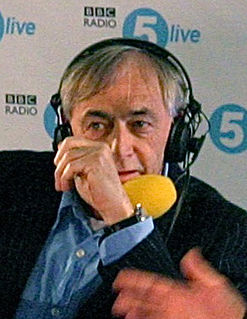A Quote by Bettany Hughes
A number of politicians have failed to recognise the consistent truth of history: that we're both an emotional and a rational species, and that we make decisions very emotionally.
Related Quotes
The very first company I started failed with a great bang. The second one failed a little bit less, but still failed. The third one, you know, proper failed, but it was kind of okay. I recovered quickly. Number four almost didn't fail. It still didn't really feel great, but it did okay. Number five was PayPal.
It's all emotion. But there's nothing wrong with emotion. When we are in love, we are not rational; we are emotional. When we are on vacation, we are not rational; we are emotional. When we are happy, we are not [rational]. In fact, in more cases than not, when we are rational, we're actually unhappy. Emotion is good; passion is good. Being into what we're into, provided that it's a healthy pursuit, it's a good thing.
The function of traditional history is to create a citizenry that looks to the top - the president, Congress, the Supreme Court - to make the important decisions. That's what traditional history is all about: the laws that were passed, the decisions made by the court. So much of history is built around "the great men." All of that is very anti-democratic.
Emotional dependence is the opposite of emotional strength. It means needing to have others to survive, wanting others to "do it for us," and depending on others to give us our self-image, make our decisions, and take care of us financially. When we are emotionally dependent, we look to others for our happiness, our concept of "self," and our emotional well-being. Such vulnerability necessitates a search for and dependence on outer support for a sense of our own worth.
Emotional Literacy means being able to recognise what you are feeling, so that it doesn't interfere with thinking. It becomes another dimension to draw upon when making decisions or encountering situations. Emotional expression by contrast can mean being driven by emotions, so that it isn't possible to think. These two things are often confused, because we are still uncomfortable with the idea of the validity of feelings.
Truth is found neither in Marxism nor in traditional capitalism. Each represents a partial truth. Historically capitalism failed to see the truth in collective enterprise, and Marxism failed to see the truth in individual enterprise. Nineteenth century capitalism failed to see that life is social and Marxism failed and still fails to see that life is individual and personal. The Kingdom of God is neither the thesis of individual enterprise nor the antithesis of collective enterprise, but a synthesis which reconciles the truths of both.
If we decide rightly what to do, or use a correct procedure for making such decisions, that has to be because the decisions or the procedure rest on good reasons, and these reasons consist in the apprehension of truths about what we ought to do. Because these truths must constitute reasons for our decisions, and because in the rational order, reasons must always precede the decisions based on them, the truth conditions of claims about what we ought to cannot be reduced to, or constructed out of, decisions about what to do, or procedures for making such decisions.

































